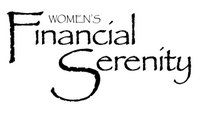
I'm surfing the tsunami swell of the Baby Boom generation – those born between 1946 and 1964.
Turning 50 might have signaled going over the hill for our mothers, but not for boomer women like Mary Anne and me. After all, we are better educated, generally economically optimistic and more comfortable in our independence and individuality than any other generation of women before us.
And more power to us, the American Woman! According to a 2005 survey that was conducted by FGI Research for "Town & Country" readers:
• Approximately 42 million women are aged forty to sixty. (Next Tuesday, 10/24/06, our population will hit 300 million.)
• Women solely or jointly own 87 percent of homes.
• Women control or influence 80 percent of consumer purchases.
• By 2010, 60 percent of wealth will be controlled by women.
• Boomer women are six times more likely to share responsibility for savings and investment than their mothers were.
• Full-time college enrollment by older women has increased by 32 percent in the past decade.
But there are other compelling statistics. According to "Time" magazine, February 6, 2006:
• 58 percent of women in the baby boom generation have less than $10,000 saved in a pension or 401(k) plan.
• 87 percent of impoverished elderly are women.
• Having failed to save sufficiently for retirement, the average woman born between 1946 and 1964 will probably have to work until the age of 74.
Many over 50 are awash in debt, they constantly rearrrange priorities and avoid acknowledging their aging bodies. Boomer actions, and inactions, continue to direct our world. None of us has intended to mess anything up. In fact, the goals we imagined in our youth were generally noble. But then, we've always assumed time was on our side to pay off our credit cards and sock enough away for a comfortable retirement.
Despite these concerns, many boomer women refuse to be sucked into the stereotyped despair of mid-life crisis. For them, life continues to be an exploration. They share a a hunch that the best years are yet to come. Instinctively women our age recognize that the simplicity and spirituality are the path to that destination.
Women's Financial Serenity helps women find that path.




